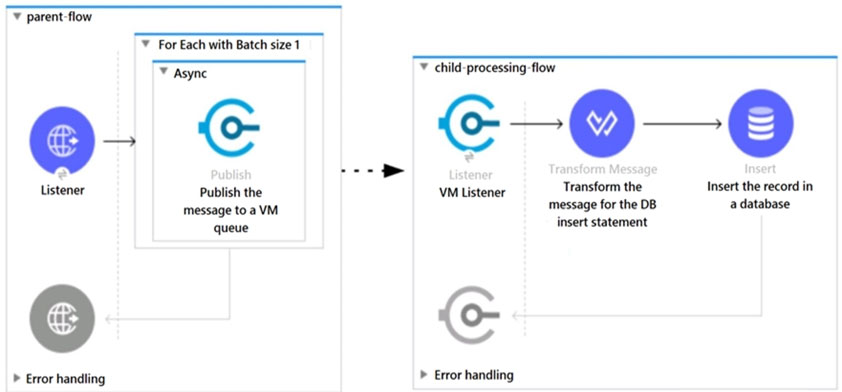

Refer to the exhibit. A Mule 4 application has a parent flow that breaks up a JSON array payload into 200 separate items, then sends each item one at a time inside an Async scope to a VM queue.
A second flow to process orders has a VM Listener on the same VM queue. The rest of this flow processes each received item by writing the item to a database.
This Mule application is deployed to four CloudHub workers with persistent queues enabled.
What message processing guarantees are provided by the VM queue and the CloudHub workers, and how are VM messages routed among the CloudHub workers for each invocation of the parent flow under normal operating conditions where all the CloudHub workers remain online?
tchine88
4 months, 1 week agobkahraman
6 months, 2 weeks agoViv2005
1 year, 10 months agomajda091983
1 year, 11 months agomajda091983
1 year, 11 months agomadgeezer
2 years, 2 months agoAkanshaR91
2 years, 2 months ago[Removed]
2 years, 3 months agorazz123098
2 years, 4 months agoawsuser1
2 years, 4 months agoanonymouse69420
2 years, 6 months agosanni27
2 years, 9 months agoOutdoor25
2 years, 9 months agomajda091983
1 year, 11 months agoPavan_Nagineni
3 years, 1 month agoawstj
3 years, 1 month ago